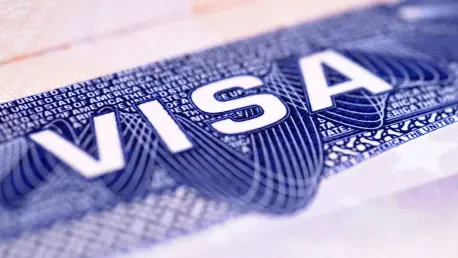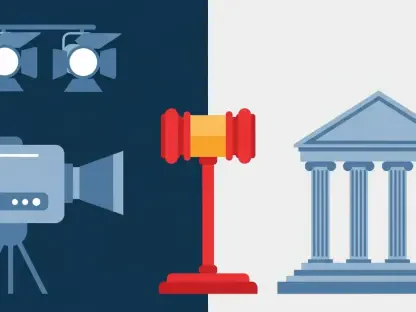In this engaging interview, Timothy Wainscott talks with Desiree Sainthrope, a renowned legal expert with a focus on trade agreements and global compliance. With her vast experience and understanding of the intricacies of immigration law, Sainthrope provides insights into a pressing case involving international students whose visas were revoked by the Department of Homeland Security (DHS). This conversation delves into the legality of the actions taken by DHS, the effects of the temporary restraining order (TRO) granted by a Connecticut federal judge, and the broader implications these legal developments might have on the future of immigration law in the U.S.
What led the international students to file a class action regarding their student visa statuses?
The students decided to file a class action as a response to what they perceived as sudden and unjustified terminations of their student visas. This upheaval created immediate unrest, impacting their ability to continue with their studies and future plans. By forming a class action, these students aimed to challenge the Department of Homeland Security’s actions collectively, amplifying their voices and seeking justice through the judicial system.
Can you explain how the Department of Homeland Security’s actions were deemed “unilateral and inexplicable” in the complaint?
The phrase “unilateral and inexplicable” refers to the abruptness and lack of communicated rationale behind the revocation of the visas. From the students’ perspective, the DHS acted without transparent procedures or considerations, removing their visa statuses without prior notice or clear reasoning, hence treating affected students not as individuals with rights but merely as entries in a bureaucratic process.
How does the temporary restraining order (TRO) protect the named plaintiffs in this situation?
The TRO specifically safeguards the named plaintiffs by ensuring that their visa statuses are reinstated and protected from further unilateral actions by the DHS. It is a legal measure that temporarily halts any detrimental effects stemming from the visa revocation, providing relief and stability while the case is adjudicated, allowing these students to pursue their studies uninterrupted.
What are the implications of DHS’s reinstatement of status being mandatory due to the TRO?
The TRO’s mandate for DHS to reinstate the students’ visa statuses is a powerful assertion of judicial oversight. It underscores that decisions impacting individuals’ lives cannot be made arbitrarily, compelling DHS to acknowledge and rectify their previous actions. This sets a precedent for accountability and illuminates the checks and balances inherent in the legal system, reaffirming the judiciary’s role as a protector of rights against administrative overreach.
How many students have been affected across the United States by the visa revocations mentioned in the complaint?
According to the complaint, over 1,500 students nationwide have experienced visa revocations. This extensive number illustrates the widespread impact of DHS’s actions, highlighting the issue as not merely an isolated incident but a significant policy execution affecting international students throughout the country.
What role did the ACLU Foundation of Connecticut play in this legal case?
The ACLU Foundation of Connecticut played an instrumental role as legal counsel for the plaintiffs, providing the necessary legal expertise and support to successfully pursue the TRO. They acted as advocates for the students’ rights, illuminating the broader human rights implications of the case and stressing the importance of fair treatment and due process within federal immigration actions.
Could you provide insight into how this situation affects students who are currently attending classes and those nearing graduation?
For students presently attending classes, this uncertainty jeopardizes their academic standing and future career opportunities. Those close to graduating face the anxiety of not being able to complete their studies, their professional trajectories suddenly stalled. The situation disrupts their educational paths and places undue emotional and psychological stress on their lives, as their fates become entangled in a complex legal process.
What are the potential long-term ramifications of this TRO on international students studying in the U.S.?
This TRO may serve as a landmark case that influences future policies on student visas, potentially leading to more stringent checks on administrative actions and reinforcing protections for international students. It could also affect the willingness of prospective international students to study in the U.S., as they might feel more assured of the legal protections afforded to them. It highlights the necessity for transparent and fair immigration policies that align with educational goals and rights.
How might this case influence future immigration law decisions regarding student visas?
This case might catalyze a shift in how immigration laws, especially those dealing with student visas, are both crafted and executed. Legal clarity and procedural safeguards will likely be emphasized in future policy making to prevent similar instances from arising. The outcome of this case may inform legislative and regulatory frameworks, ensuring that they reflect both the legal complexities and the lived experiences of international students in the U.S.
Do you have any advice for our readers?
For those navigating similar challenges, it is crucial to stay informed about your legal rights and seek support from experienced advocates who can guide you. Understanding the legal landscape can empower international students and others affected by immigration policies. Always remember that collective action and informed resistance form the backbone of justice in legal settings.









